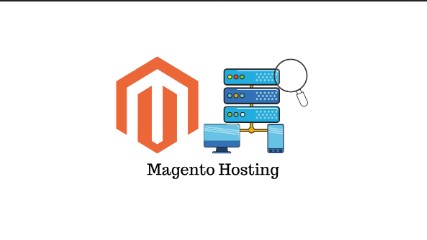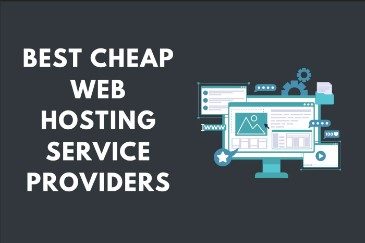Buy Hosting Plan
In the digital age, web hosting forms the backbone of every online presence, from personal blogs to enterprise websites.
Understanding its fundamentals and making informed decisions are crucial steps toward a successful online venture.
Understanding the Basics of Web Hosting
Web hosting is the service that allows individuals and organizations to make their websites accessible via the World Wide Web. It involves storing website files on a server connected to the internet, ensuring continuous availability to visitors. Different types of hosting plans cater to varying needs and levels of technical expertise.
What is web hosting?
Web hosting refers to the provision of storage space and access for websites on remote servers. It enables websites to be viewed globally through the internet, ensuring reliability and accessibility 24/7.
Types of web hosting plans available
Web hosting plans range from shared hosting, where multiple websites share resources on a single server, to dedicated hosting, offering exclusive server access. Virtual Private Server (VPS) hosting provides a balance between shared and dedicated hosting, offering more control and customization options.
Factors to Consider Before Buying a Hosting Plan
Before committing to a hosting plan, several factors must be carefully evaluated to ensure it meets the website’s requirements and supports future growth.
Assessing your website’s needs
Considering traffic expectations helps determine the bandwidth needed to handle visitor interactions efficiently. Storage requirements depend on content volume, such as images, videos, and databases, impacting the choice of hosting plan.
Understanding different hosting types
Shared hosting is cost-effective for beginners but may lack scalability. VPS hosting offers dedicated resources within a shared environment, ideal for growing websites. Dedicated hosting provides maximum control and performance for high-traffic websites with extensive resource demands.
Choosing the Right Hosting Provider
Selecting a reputable hosting provider ensures reliability, security, and efficient customer support, critical for maintaining website performance.
Researching hosting providers
Evaluating provider reputation through customer reviews and industry feedback helps gauge reliability and service quality. Assessing customer support responsiveness and expertise ensures timely assistance during technical issues or server maintenance.
Evaluating hosting features and specifications
Disk space determines the amount of data and files that can be stored on the server, while bandwidth limits affect data transfer speeds and website responsiveness. Uptime guarantees and SLAs ensure minimum service availability, safeguarding against downtime and performance disruptions.
Comparing Hosting Plans and Pricing
Understanding the cost structure and feature offerings across different hosting plans aids in making cost-effective decisions aligned with business goals.
Understanding pricing structures
Initial costs may vary from renewal rates, influencing long-term budget planning. Additional expenses, such as domain registration fees and SSL certificates, should be factored into the total cost of ownership.
Comparing features across plans
Control panel options like cPanel or Plesk simplify server management and website administration tasks. Email hosting capabilities and additional add-ons, such as site backups and security features, enhance functionality and data protection.
Making the Purchase Decision
Choosing the right hosting plan is a pivotal decision that can significantly impact the performance and accessibility of your website. Here’s a detailed exploration of the steps involved in making an informed purchase decision:
Scalability Considerations
Understanding the scalability options offered by hosting providers is crucial, especially if your website is expected to grow over time.
Scalability allows you to adjust resources such as CPU, RAM, and storage seamlessly as your traffic and data requirements increase.
Whether it’s upgrading from shared hosting to a VPS or scaling up within a dedicated hosting environment, flexibility in scaling ensures your website can handle spikes in traffic without compromising performance or user experience.
Checking for Money-Back Guarantees and Trial Periods
Reputable hosting providers often offer money-back guarantees or trial periods to allow prospective customers to test their services risk-free.
These periods typically range from 30 to 90 days, during which you can evaluate the hosting provider’s performance, uptime, customer support, and overall suitability for your website’s needs.
Utilize this time to conduct thorough testing, upload content, monitor speed and reliability, and interact with customer support to gauge responsiveness and expertise.
Analyzing Customer Support Quality
Prompt and knowledgeable customer support is essential in addressing technical issues, resolving downtime incidents, and providing guidance on server management.
Before making a purchase, engage with the hosting provider’s support team through live chat, email, or phone to assess response times, communication clarity, and problem-solving capabilities.
Evaluate their availability, including whether support is available 24/7 and if they offer multilingual assistance if needed. Reliable customer support ensures you have assistance whenever technical challenges arise, minimizing disruptions to your website’s operations.
Considering Contract Terms and Renewal Rates
Review the hosting provider’s contract terms and renewal rates to understand the long-term financial commitment and avoid unexpected cost increases. Initial promotional prices may differ from regular renewal rates, so calculate the total cost over the first year and subsequent years to budget effectively.
Pay attention to contract lengths, as longer-term commitments may offer discounts or incentives but limit flexibility if your hosting needs change. Ensure transparency in pricing and contract terms to make an informed decision aligned with your budget and growth plans.
Assessing Security and Backup Options
Website security is paramount in safeguarding sensitive data, protecting against cyber threats, and ensuring regulatory compliance. Evaluate the hosting provider’s security measures, including SSL certificates, DDoS protection, firewalls, and regular malware scans.
Robust backup solutions, such as automated backups and restoration options, are essential for mitigating data loss in the event of hardware failure or accidental deletion. Verify the frequency and accessibility of backups to maintain data integrity and recoverability.
Analyzing Reviews and Recommendations
Before finalizing your hosting plan, research independent reviews and seek recommendations from industry peers, online forums, and social media platforms. Peer insights provide valuable perspectives on reliability, performance, and customer satisfaction beyond promotional claims.
Pay attention to specific feedback related to uptime reliability, server speed, technical support experiences, and overall user satisfaction to validate the hosting provider’s reputation and service quality.
By meticulously considering scalability options, testing with trial periods, evaluating customer support quality, understanding contract terms, assessing security measures, and analyzing peer reviews, you can confidently navigate the process of selecting the right hosting plan.
A well-informed purchase decision not only meets your current website requirements but also sets a reliable foundation for future growth and success in the digital landscape.
Finalizing the hosting plan involves considering scalability options to accommodate future growth and exploring trial periods or money-back guarantees for risk-free testing.
Finalizing your hosting plan selection
Scalability options allow websites to expand resources seamlessly as traffic and content demands increase. Money-back guarantees and trial periods provide reassurance in testing service reliability and performance before long-term commitment.
Conclusion
In conclusion, navigating the realm of web hosting requires careful consideration of technical requirements, provider reliability, and cost-effectiveness.
By understanding the basics of web hosting, evaluating crucial factors, and comparing hosting plans comprehensively, businesses and individuals can make informed decisions that support their online goals effectively.
With these insights and tips, embarking on a smooth hosting experience becomes achievable, ensuring optimal website performance and visitor satisfaction in the digital landscape.





